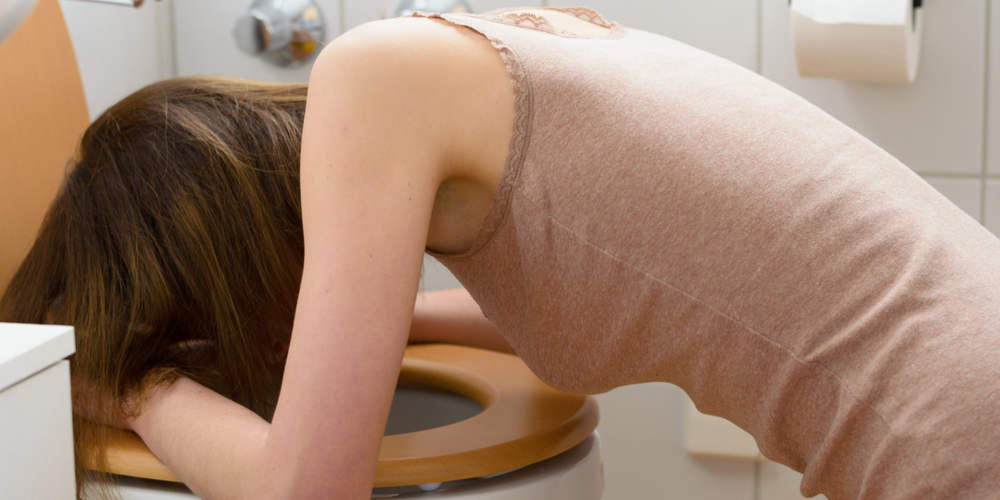
Bulimia nervosa (Bulimia) is an eating disorder which can affect your ability to maintain a regular eating pattern. Whereas with other eating disorders, like anorexia, you will be dangerously underweight, with bulimia you are likely to be of normal weight or higher. So what are the symptoms of bulimia?
The main characteristic of Bulimia is binge eating large amounts of food or drinks. Even though you may not be hungry you can feel out of control and not able to stop eating. This binge is then followed by several purging behaviours to compensate for it. Purging means you try to ‘un-do’ the effects of the binge and the most common practice amongst sufferers is self-induced vomiting. But there’s many other ways in which sufferers try to purge. Other common practices include use of laxatives, diuretics and other drugs. In some types of bulimia the sufferer will use crash diets or exercise as a means of purging.
The reasons behind binging and purging are many and varied and it may not just be done for fear of gaining weight. All kinds of feelings, events and emotions can contribute to these needs and often the chaotic eating is used as a way to cope with emotional problems.
This cycle can lead to terrible effects on the body causing many symptoms both physical and mental. Low self-esteem and mood swings often accompany the physical symptoms of bulimia. And guilty feelings are also usual. Common physical symptoms include;
- Gastric reflux
- Dehydration
- Hypokalemia (A low concentration of potassium in the blood)
- Electrolyte imbalance
- Inflamation of the esophagus
- Esophagitis
- Peptic ulcers
- Oral trauma
- Problems with teeth caused by acid from vomiting
- Bowel problems from laxative use
- Irregular menstrual periods
- Swollen saliva glands
The most common therapy for treating bulimia is a regular treatment called cognitive behavioural therapy (CBT). This technique helps look at the reasons for developing bulimia and aims to gradually change the ideas you hold about your weight and body-image. In addition the treatment will equip you to deal with emotional issues so that you won’t turn back to the binge-purge cycle when faced with problems. Common medications used to treat bulimia include SSRI’s (selective serotonin reuptake inhibitors) which prevent excess serotonin from being pumped back into the brain. These are often coupled with antidepressants to help reduce anxiety and obsessive thoughts. Additional medication such as potassium supplements may be used to help treat physical problems which arise from laxative or diuretic use.
Bulimia has been shown to affect women more than men and symptoms usually start between the ages of 16-40 but in some cases it can develop much earlier. Bulimia is increasingly common and it’s estimated that around 8 in 100 women will have a problem with bulimia at some point in their lives. There’s also a strong genetic factor to bulimia and people with close relatives suffering from bulimia are about four times more likely to develop it themselves. Bulimia is highly treatable and many sufferers will improve once treated. However bulimia is very difficult to ‘cure’ and many will suffer occasional relapses.